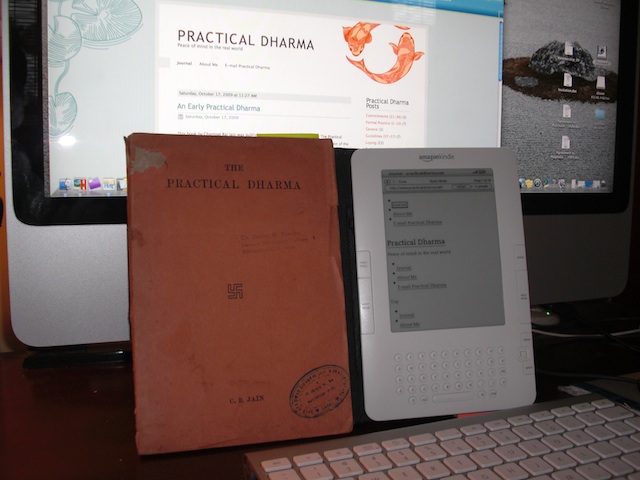Meeting Obligations with Right Effort
 Wednesday, January 1, 2014
Wednesday, January 1, 2014 Today is January 1, a time I review my intentions for the next year (New Year's Resolutions). A resolution I thought about recently was, "How can I increase my integrity by meeting my commitments and obligations?"
The solution is a paradox. For most people reading this, it is impossible to improve in this task by increasing effort in commitment to obligations. This is because increasing such effort only increases the number of commitments and obligations with no possible end.
When someone “enables” another person, it is because one person has taken on an obligation that belongs to the other person and therefore he or she is over-doing while the other person is under-doing. In addition, the other person is deprived of the opportunity to accept responsibility, leaving them increasingly dependent. It is called co-dependency, when one person is unwilling to let the other person accept his or her responsibility due to an emotional over-involvement. (As in the case when one would feel guilty if he or she required the other to suffer the consequences of his or her choice.) One is co-dependent to the extent that he or she sees the the other person's under-do as an opportunity to over-do, to avoid feeling guilty about the other's plight (result of Karma), which of course is totally due to the other person’s conduct (such as a habit of under-doing or doing wrong actions). No amount of over-doing or enabling (by someone else) will resolve this issue and inevitably over-doing/enabling (by someone else) only contributes to more under-doing or wrong action on the part of the other.
Even in the case were there is no co-dependency operating, this same dynamic (if I over-do, someone else is likely to be in the position of under-doing) is at work. This could be the situation when one fails to delegate appropriately or when one simply volunteers for more than can be handled.
It was suggested earlier that for most of us reading here, it is not possible to increase commitment to obligations as a solution. It is assumed that if you are reading this you are open to insight and strive for a life of integrity. Therefore you are probably already exerting right effort, but may still be having difficulty. If this is the case, it is suggested that the problem may be related to not setting boundaries on the obligations accepted.
Engaging in more dilegent effort to meet obligations is (perhaps) what we have been trying without success. Increasing the commitment to work harder at obligations usually results only in accumulating more obligations that cannot be fully accomplished. However, there is at least a partial solution.
The key to meeting obligations is appropriate boundaries. If one only accepts those obligations that one actually owns, it is more likely "right effort" will accomplish these. When one accepts obligations that actually belong to others, there is no end to the cycle of accepting more and more obligation, because the others may begin or continue to expect this. With so many things that need to be done in the world, there is an endless supply of obligations that can never be fully met.
Summary: The key to meeting commitments is to only accept those that are actually yours, by maintaining appropriate boundaries. Accept only commitments and obligations that are appropriate, by saying “No” when it is needed. Then you can extend right effort to accomplish these appropriate obligations. Avoid taking on another’s obligations because this diminishes the other by placing him or her in the position of not doing his or her fair share.
If you think others might like this article submit it to StumbleUpon by clicking Submit.


